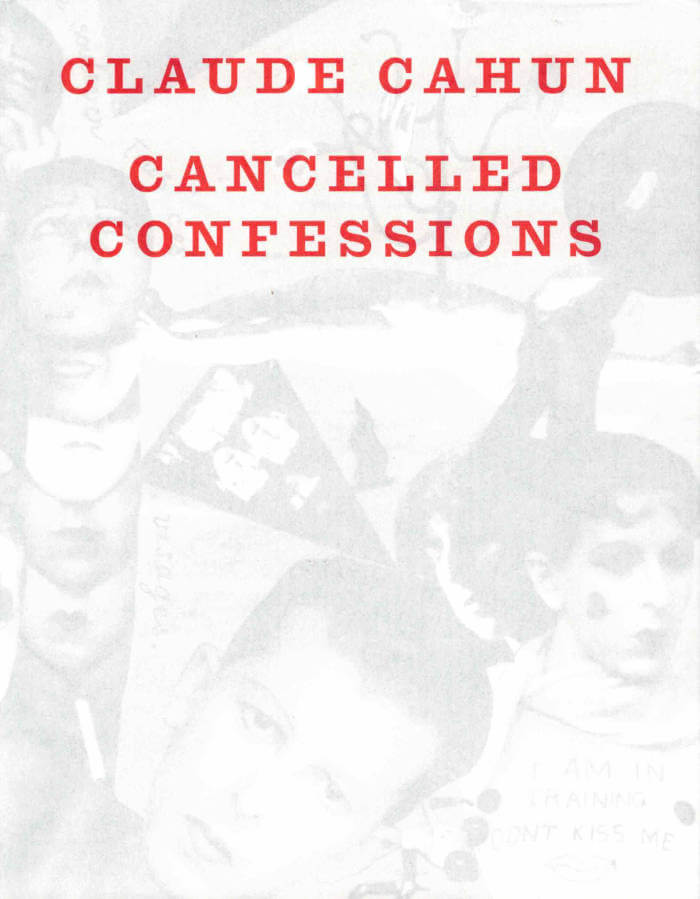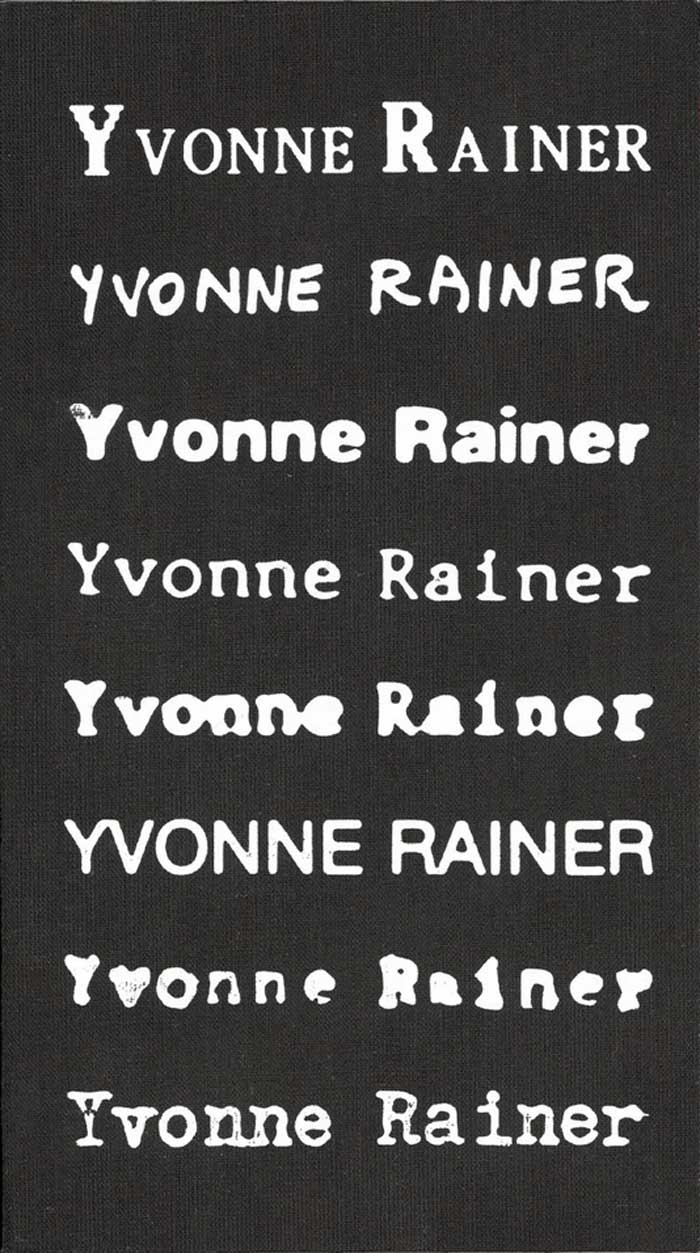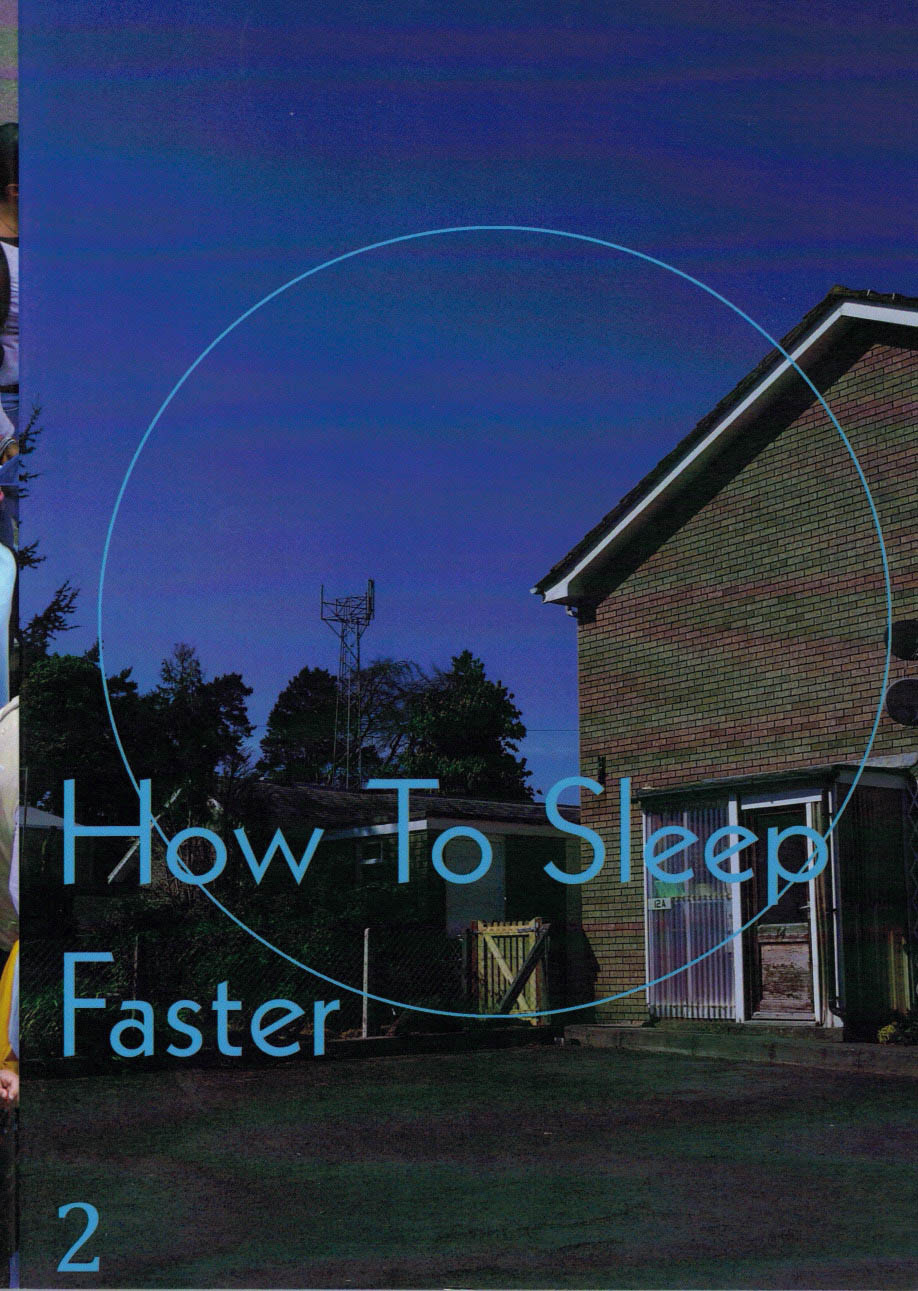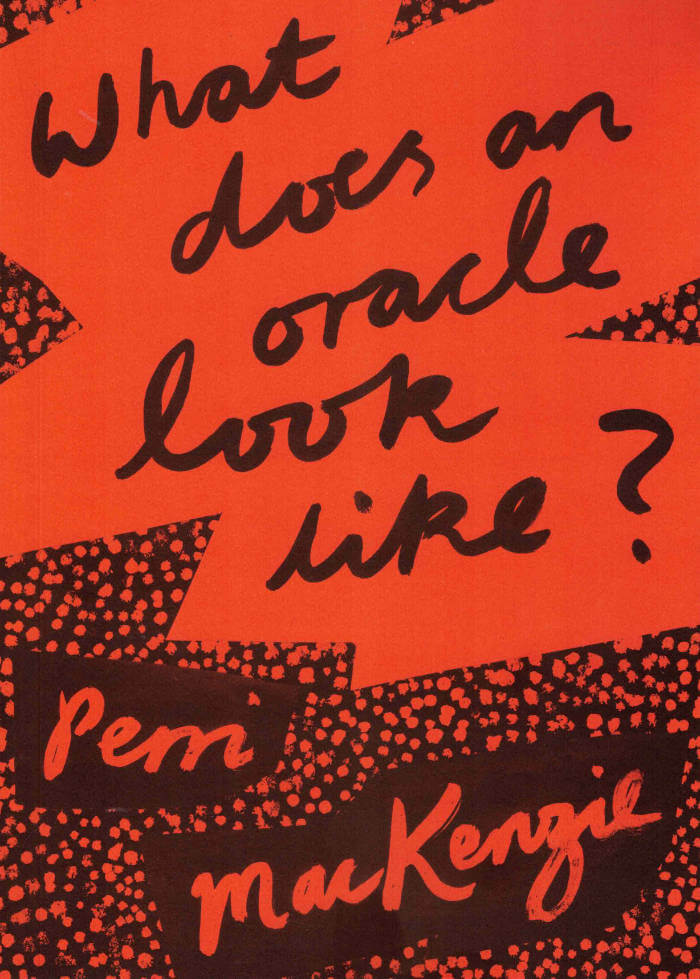
Cancelled Confessions
Aveux non Avenus is considered to be Claude Cahun’s masterpiece. Published in 1930 it defied description (it still does) and also showcased the incredible photomontages that Cahun and her lifelong partner, Marcel Moore, created together.
Cancelled Confessions reveals Claude Cahun to be a major surrealist writer and pioneering queer theorist almost a century ahead of her time.
Cahun and Moore’s appeal is wide and universal. They were adventurers in life as in art. Cahun famously terrified Andre Breton in the 1920s when she appeared in a Paris café with her head shaved and painted gold. Having moved to Jersey in 1938, Cahun and Moore waged a mischievous two-person resistance campaign against the occupying Nazi forces from 1940. Finally caught and imprisoned in 1944, they were sentenced to death in 1945, saved at the very last moment by the armistice.
With Amelia Groom Susan de Muth Claude Cahun Marcel Moore Pierre Mac Orlan François Leperlier
Designed by Joe Hales Sam Eccles
Language: English






